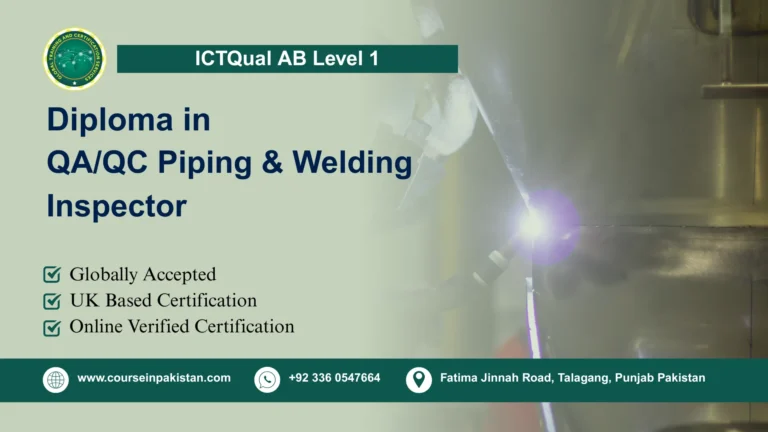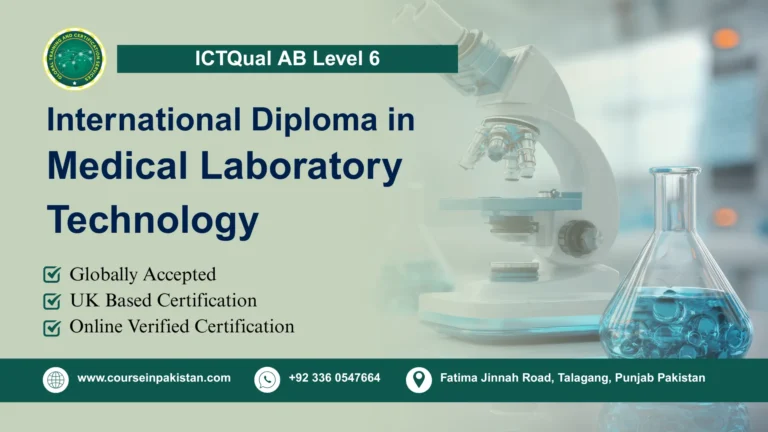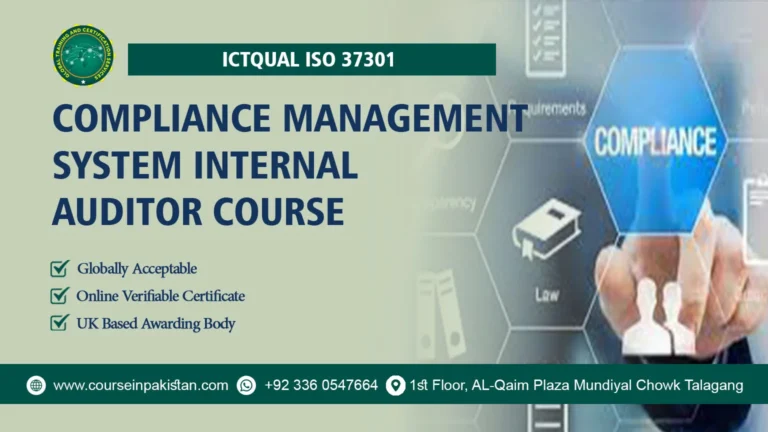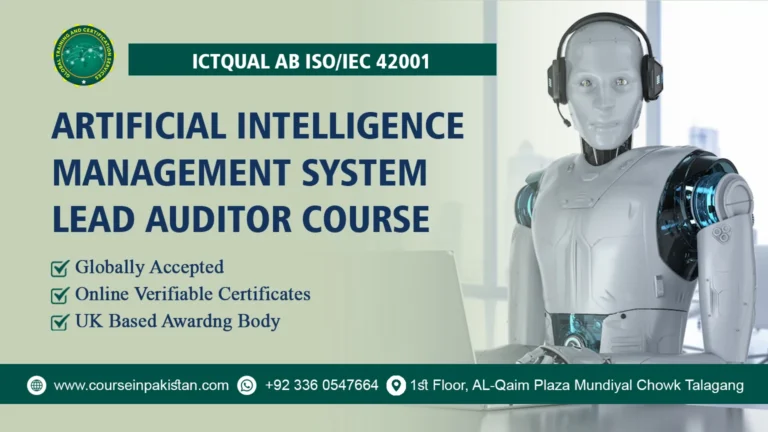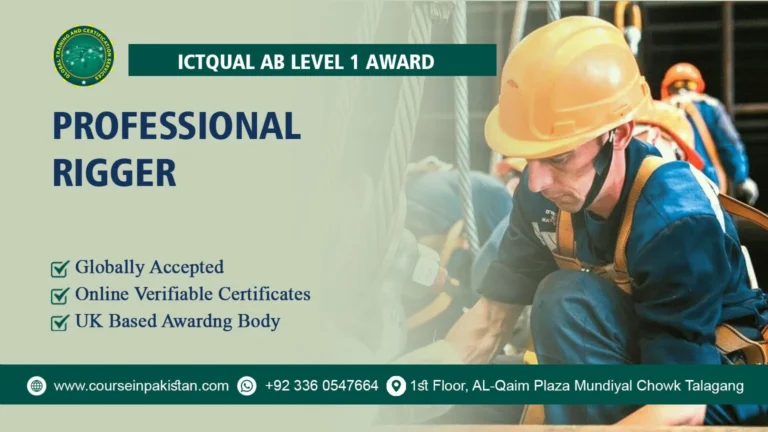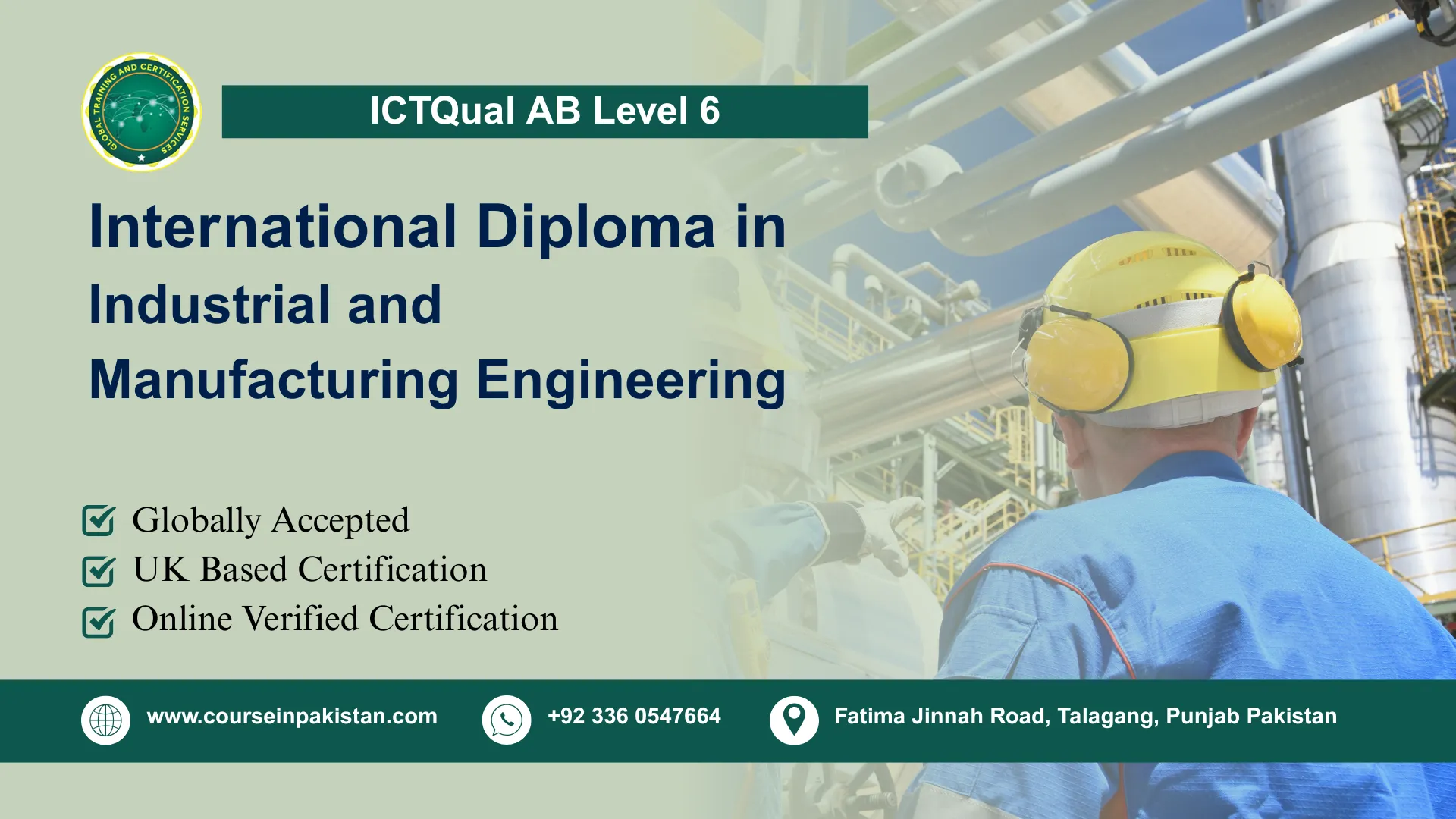
The ICTQual AB Level 6 International Diploma in Industrial and Manufacturing Engineering is a globally recognized qualification designed to prepare learners for careers in modern industry and manufacturing sectors. This diploma provides an in-depth understanding of industrial processes, production systems, automation, supply chain management, and quality control, ensuring learners acquire both theoretical knowledge and practical competencies.
The program emphasizes innovation, productivity, and efficiency in manufacturing systems while incorporating sustainable and advanced engineering practices. Learners are equipped with problem-solving, leadership, and project management skills that are essential to thrive in the global industrial and manufacturing landscape. Whether learners are fresh students beginning their professional journey or experienced professionals aiming for career advancement, this diploma provides the tools and recognition necessary to succeed in a competitive market.
Course Overview
The ICTQual AB Level 6 International Diploma in Industrial and Manufacturing Engineering is a 360-credit, assignment-based certification that learners can complete at their own pace from anywhere in the world. This prestigious qualification is British Council verifiable, MOFA and Embassy attested, making it highly valuable for international job applications, career advancement, and Iqama approval.
This qualification is designed for both fresh learners and experienced professionals. Fresh candidates are required to complete 36 mandatory assignments within 3 years to cover the full scope of industrial and manufacturing engineering knowledge. However, professionals with at least 6 years of verifiable experience can fast-track their certification by undergoing professional discussion meetings with ICTQual AB Approved Assessors, enabling them to achieve the diploma in a shorter timeframe without completing all assignments.
By offering flexibility, credibility, and international recognition, this diploma ensures learners can pursue advanced opportunities in industrial and manufacturing sectors worldwide. It is a perfect choice for those aiming to strengthen their expertise, secure high-demand job roles, and progress academically and professionally.
Key Highlights of the Course:
- 360-credit qualification with 36 mandatory assignments for fresh learners
- Flexible, self-paced learning accessible from anywhere in the world
- British Council verifiable, MOFA and Embassy attested certification
- Fast-track option available for professionals with 6+ years of verifiable experience
- Globally recognized qualification for career growth and Iqama approval
Course Benefits
Global Recognition
- Verified by British Council and attested by MOFA and Embassies for international acceptance.
- Enhances employability across industrial, manufacturing, and engineering sectors worldwide.
Career Advancement
- Opens pathways to roles in production management, industrial automation, process improvement, and supply chain optimization.
- Prepares learners for supervisory, managerial, and leadership positions in manufacturing industries.
Flexible Learning
- 100% assignment-based, enabling learners to study at their own pace and convenience.
- Accessible globally, allowing learners to complete studies without geographical restrictions.
Fast-Track Certification
- Experienced professionals can complete the qualification quickly through professional discussions.
- Recognition of prior learning and experience ensures practical expertise is valued.
Professional Growth
- Develops strong analytical, technical, and problem-solving skills in industrial engineering.
- Equips learners with competencies in lean manufacturing, quality assurance, and sustainable production systems.
Job and Immigration Support
- Best suited for Iqama approval and international employment opportunities.
- Adds credibility and recognition for visa processing, career mobility, and overseas job placements.
Course Study Units
This qualification, the ICTQual AB Level 6 International Diploma in Industrial & Manufacturing Engineering, consists of 36 mandatory units.
Year 1 – Foundation in Industrial & Manufacturing Engineering
- Principles of Industrial and Manufacturing Engineering
- Engineering Mathematics
- Fundamentals of Mechanical and Electrical Engineering
- Materials Science and Engineering
- Engineering Drawing and CAD
- Introduction to Manufacturing Processes
- Basics of Automation and Control Systems
- Production Planning and Operations Management
- Quality Fundamentals and Inspection Techniques
- Health, Safety, and Environmental Practices in Engineering
- Communication and Technical Report Writing
- Introduction to Project Management in Engineering
Year 2 – Intermediate Studies in Industrial & Manufacturing Engineering
- Manufacturing Systems and Technology
- Advanced Production Planning and Scheduling
- Lean Manufacturing and Continuous Improvement
- Industrial Automation and PLC Programming
- Supply Chain and Logistics Management
- Mechanical Design and Manufacturing Processes
- Industrial Maintenance and Reliability Engineering
- Computer-Aided Manufacturing (CAM)
- Data Acquisition and Process Monitoring
- Sustainable Manufacturing and Green Engineering
- Applied Research Methods in Engineering
- Human Factors and Ergonomics in Manufacturing
Year 3 – Advanced Studies in Industrial & Manufacturing Engineering
- Smart Manufacturing and Industry 4.0
- Advanced Manufacturing Technologies (Additive, CNC, etc.)
- Robotics and Autonomous Systems in Manufacturing
- Advanced Quality Management and Six Sigma
- Cyber-Physical Systems and IoT in Manufacturing
- Supply Chain Optimisation and Global Operations
- Advanced Process Engineering and Simulation
- Innovation and Product Development in Engineering
- Professional Ethics and Sustainability in Manufacturing
- Technology Entrepreneurship and Business Development
- Infrastructure and Facility Planning for Manufacturing Systems
- Final Year Major Project (Capstone Project)
Learning Outcomes
Year 1 – Foundation in Industrial & Manufacturing Engineering
Principles of Industrial and Manufacturing Engineering
- Understand the fundamental concepts, scope, and applications of industrial and manufacturing engineering.
- Apply basic principles to improve productivity, efficiency, and process flow.
Engineering Mathematics
- Solve complex engineering problems using advanced mathematical methods.
- Apply mathematical models in industrial and manufacturing systems analysis.
Fundamentals of Mechanical and Electrical Engineering
- Explain the core principles of mechanics, dynamics, and electrical systems.
- Apply basic mechanical and electrical concepts to industrial operations.
Materials Science and Engineering
- Identify properties and applications of metals, polymers, ceramics, and composites.
- Evaluate material selection for durability, performance, and cost-effectiveness.
Engineering Drawing and CAD
- Create accurate engineering drawings using traditional and CAD methods.
- Apply drafting standards to communicate design specifications effectively.
Introduction to Manufacturing Processes
- Demonstrate knowledge of machining, casting, forming, and joining processes.
- Evaluate the advantages and limitations of different manufacturing methods.
Basics of Automation and Control Systems
- Understand the fundamentals of sensors, actuators, and control loops.
- Apply automation principles to enhance productivity in manufacturing.
Production Planning and Operations Management
- Develop strategies for effective resource utilization and workflow management.
- Apply scheduling and planning techniques for optimized production.
Quality Fundamentals and Inspection Techniques
- Explain basic principles of quality assurance and quality control.
- Use inspection methods and tools to ensure compliance with standards.
Health, Safety, and Environmental Practices in Engineering
- Apply health and safety regulations in industrial settings.
- Assess environmental impacts of manufacturing processes and recommend solutions.
Communication and Technical Report Writing
- Develop professional reports and technical documentation.
- Demonstrate effective oral and written communication in engineering contexts.
Introduction to Project Management in Engineering
- Understand the fundamentals of project management in engineering environments.
- Apply planning, scheduling, and cost estimation techniques to projects.
Year 2 – Intermediate Studies in Industrial & Manufacturing Engineering
Manufacturing Systems and Technology
- Explain the principles of integrated manufacturing systems.
- Apply modern technologies to improve efficiency and productivity.
Advanced Production Planning and Scheduling
- Analyze production workflows for efficiency optimization.
- Apply advanced scheduling techniques to manage complex operations.
Lean Manufacturing and Continuous Improvement
- Understand lean principles and waste reduction methods.
- Apply Kaizen and continuous improvement tools to enhance processes.
Industrial Automation and PLC Programming
- Program and troubleshoot PLCs for automation systems.
- Integrate automation solutions in industrial applications.
Supply Chain and Logistics Management
- Explain the principles of logistics, procurement, and distribution.
- Optimize supply chain processes to improve cost-effectiveness and efficiency.
Mechanical Design and Manufacturing Processes
- Apply mechanical design principles in manufacturing environments.
- Select suitable processes for product design and development.
Industrial Maintenance and Reliability Engineering
- Develop strategies for preventive and predictive maintenance.
- Analyze reliability metrics to improve system performance.
Computer-Aided Manufacturing (CAM)
- Utilize CAM software to create manufacturing solutions.
- Apply automated programming to support CNC machining and other processes.
Data Acquisition and Process Monitoring
- Implement data acquisition systems for process control.
- Monitor and analyze production data for decision-making.
Sustainable Manufacturing and Green Engineering
- Apply sustainable practices to reduce environmental impact.
- Integrate green technologies into industrial processes.
Applied Research Methods in Engineering
- Conduct applied research using appropriate methodologies.
- Interpret data and present findings effectively for industrial use.
Human Factors and Ergonomics in Manufacturing
- Evaluate workplace design for operator safety and efficiency.
- Apply ergonomic principles to reduce risks and improve productivity.
Year 3 – Advanced Studies in Industrial & Manufacturing Engineering
Smart Manufacturing and Industry 4.0
- Understand digital transformation and smart factory concepts.
- Apply Industry 4.0 technologies to optimize production systems.
Advanced Manufacturing Technologies (Additive, CNC, etc.)
- Apply knowledge of advanced processes such as additive manufacturing and CNC.
- Evaluate the benefits and challenges of adopting new technologies.
Robotics and Autonomous Systems in Manufacturing
- Explain robotics applications in industrial automation.
- Integrate robotic systems into manufacturing workflows.
Advanced Quality Management and Six Sigma
- Apply Six Sigma methodologies to process improvement.
- Use advanced quality tools to reduce variability and defects.
Cyber-Physical Systems and IoT in Manufacturing
- Understand the role of IoT in modern industrial operations.
- Implement cyber-physical systems for real-time monitoring and control.
Supply Chain Optimisation and Global Operations
- Analyze supply chain challenges in global environments.
- Apply optimization techniques to improve supply chain efficiency.
Advanced Process Engineering and Simulation
- Use simulation tools to model and optimize industrial processes.
- Apply process engineering concepts to achieve operational excellence.
Innovation and Product Development in Engineering
- Develop innovative solutions for product design and development.
- Apply engineering principles to manage product life cycles.
Professional Ethics and Sustainability in Manufacturing
- Apply ethical standards in industrial and professional practices.
- Promote sustainability and corporate responsibility in engineering.
Technology Entrepreneurship and Business Development
- Understand entrepreneurship principles in engineering innovation.
- Apply business development strategies to launch and sustain technology ventures.
Infrastructure and Facility Planning for Manufacturing Systems
- Plan and design efficient manufacturing facilities.
- Apply infrastructure management principles to optimize plant operations.
Final Year Major Project (Capstone Project)
- Conduct a comprehensive project integrating knowledge from all modules.
- Demonstrate problem-solving, innovation, and professional engineering skills.
Who is This Course For?
Aspiring Industrial and Manufacturing Engineers
- Individuals aiming to begin a professional career in industrial or manufacturing sectors.
- Learners who want to build a solid foundation in production systems, automation, and quality management.
Engineering Graduates and Students
- Graduates looking to specialize in industrial or manufacturing disciplines.
- Students aspiring to advance their careers in process engineering, operations, and supply chain management.
Experienced Industry Professionals
- Engineers, technicians, or supervisors seeking international recognition of their skills.
- Professionals aiming to fast-track their qualification through recognition of prior experience.
Career Changers and Enthusiasts
- Professionals from related technical fields transitioning into industrial and manufacturing engineering.
- Enthusiasts passionate about modern technologies such as Industry 4.0, automation, and robotics.
Future Progression
- Employment in roles such as production manager, manufacturing engineer, industrial process analyst, or operations supervisor.
- Advancement to leadership positions in production planning, supply chain management, and quality control.
- Opportunities in global industries adopting Industry 4.0, smart manufacturing, and automation.
- Entry into consultancy, research, or entrepreneurship within industrial and manufacturing sectors.
- International mobility with recognition for job and Iqama approval.
Academic Pathways:
- Progression to Level 7 Diplomas or Postgraduate programs in Industrial Engineering, Manufacturing Systems, or Engineering.
- Entry into specialized certifications in Lean Six Sigma, Quality Management, and Industrial Automation.
- Eligibility for Master’s degree programs in advanced manufacturing, industrial management, or robotics at international universities.
Conclusion
The ICTQual AB Level 6 International Diploma in Industrial & Manufacturing Engineering is a comprehensive, globally recognized program tailored for both fresh learners and experienced professionals. With a flexible assignment-based structure, fast-track options for industry experts, and recognition through British Council verification and MOFA attestation, it provides a pathway to career advancement and international opportunities. This qualification equips learners with the technical expertise, managerial insight, and innovative skills needed to excel in the rapidly evolving industrial and manufacturing landscape, making it a gateway to both professional and academic success.

